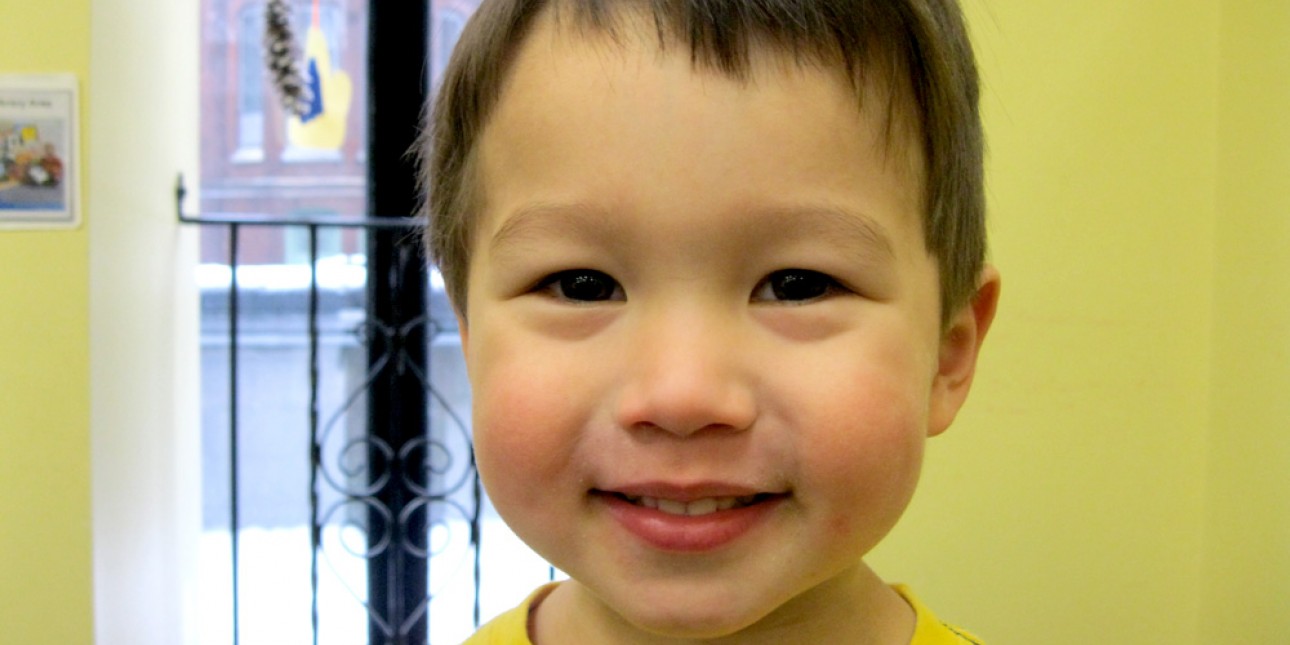In the Classroom: The Moonbeams

A new baby brings big changes to a family. Parents of young toddlers will need to do a lot of preparation before the baby comes and their attention becomes consumed by the newborn’s needs. Understand that change can be difficult for older siblings. They may feel jealous and they may act out.
Parents can prepare their older child for a new sibling. They can talk to their child about the pregnancy and get him/her involved in the excitement. You can let your toddler feel the baby kicking. Consider bringing your toddler to a prenatal visit to hear the baby’s heartbeat. When you talk about the new baby during pregnancy, keep it light and positive. Visit family and friends who have babies to get your child used to being around babies and especially used to seeing Mom and Dad hold another child.
As soon as possible after the baby is born, have your child visit you in the hospital. Did you know that hospitals often have sibling birth classes that teach children how to hold a baby and encourage them to discuss their feelings about having a new brother or sister?
Try to stick to your young toddler's routines as much as possible after the baby’s arrival. If your toddler is approaching a major milestone, like potty training or transitioning from a crib to a bed, consider making those changes a few months before your due date, or put them off until the baby is a few months old.
There are ways to help your older children adjust to the changes after the baby is home. Try to include them as much as possible in the baby’s daily care so they don’t feel left out. Some children want to help you take care of a new baby, which will give them a chance to interact in a positive way with the baby. For example, they can entertain the baby while you are changing a diaper, help push the stroller, talk to their baby brother or sister, or help dress, bathe, or burp the baby.
Adjusting to a new sibling sometimes takes time. There are some children who express no interest in a new sibling. Try to schedule some one-on-one time with older children, such as when the baby is sleeping. Knowing there is special time for them may reduce any jealousy or anger about the new baby.
It is good to encourage older children to talk about how they feel about the new baby. If a child is unable to communicate those feelings, don’t be surprised if he or she tests limits or starts speaking in baby talk. It is best not to bend the rules if your child acts up, but understand what feelings may be causing the behavior. Make it clear to your older child that while his or her feelings are important, they need to be expressed in an appropriate manner.
While welcoming a new baby requires lots of preparations, some of the most important ones will be preparing older siblings for the fun that lies ahead.